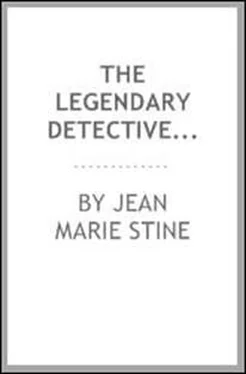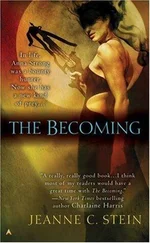"They came here in great excitement," Dr. Leonard explained. "They brought the body in with them, the man Curtis lifting her by the shoulders and the man Reid at the feet. They placed the body on this couch. I asked them who she was, and they told me she was Marguerite Melrose, an actress. That's all that was said of her identity.
"Then I made an examination of the body, seeking a trace of life. There was none, although the body was not then entirely cold. In examining her heart my hand struck the knife which had killed her – a heavy weapon, evidently used for rough work, with a blade of six or seven inches. I drew the knife out. Of course, knowing that it had pierced her heart, any idea of doing anything to save her was beyond question.
"One of the men, Curtis, seemed greatly excited about this knife after Reid called his attention to it. Curtis took the knife out of my hand and examined it closely, then asked if he might keep it. I told him it would have to be turned over to the medical examiner. He argued about it, and finally, to settle the argument, I took it out of his hand. Reid explained to Curtis that it was necessary for me to keep the knife, and finally Curtis seemed to agree to it.
"Then I suggested that the police be notified. I did this myself by telephone, the men remaining with me all the time. I asked if they could throw any light on the tragedy, but neither could. Curtis said he had been out searching for a man who had the keys to a shed where some gasoline was locked up, and it took fifteen or twenty minutes to find him. As soon as he got the gasoline he returned to the auto.
"Reid and Miss Melrose were at this time in the auto, he said. What had happened while he had been away Curtis didn't know. Reid said he, too, had stepped out of the automobile, and after exchanging a few words with Miss Melrose went into the inn. There he remained fifteen minutes or so, because inside he saw a woman he knew and spoke to her. He declared that any one of three waiters could verify his statement that he was in the Monarch Inn.
"After I had notified the police Curtis grew very uneasy in his actions – it didn't occur to me at the moment, but now I recall that it was so – and suggested to Reid that they go on to Boston and send out detectives – special Pinkerton men. I tried to dissuade them, but they went away. I couldn't stop them. They gave me their cards, however. They are at the Hotel Teutonic, and told me they could be seen there at any time. The medical examiner and the police came afterwards. I told them, and one of the detectives started immediately for Boston. They have probably told their story to him by this time."
"What did the young woman look like?" asked Hatch.
"Really, I couldn't say," said the doctor. "She wore an automobile mask which covered all her face except the chin, and there was a veil tied over her cap, concealing her hair. I didn't remove these; I left the body just as it was for the medical examiner."
"How was she dressed?" Hatch went on.
"She wore a long tan automobile dust coat of what seemed to be rich material, and beneath this a handsome – not a fancy – gown. I believe it was tailor-made. She was a woman of superb figure."
That was all that could be learned from Dr. Leonard, and Hatch and the other men raced back to Boston. The next day the newspapers flamed with the mystery of the murder of Miss Melrose, a beautiful Western actress who was visiting Boston. Each newspaper watched the other greedily to see if there was a picture of Miss Melrose; neither had one.
The newspapers also carried the stories of Jack Curtis and Charles Reid in connection with the murder. The stories were in substance just what Dr. Leonard had said, but were given in more detail. It was the general presumption, almost a foregone conclusion, that some one had killed Miss Melrose while the two men were away from the auto.
Who was this some one? Man or woman? No one could answer. Reid's story of being inside the Monarch Inn, where he spoke to a lady he knew – but whose name he refused to give – was verified by Hatch's paper. Three waiters had seen him.
The medical examiner had made only a brief statement, in which he had said, in answer to a question, that the person who killed Miss Melrose might have been either at her right, in the position Curtis would have occupied while driving the car, or might have leaned forward from behind and stabbed her. Thus it was not impossible that one of the men in the car with her had killed her, yet against this possibility was the fact that each of the men was one whom one could not readily associate with such a crime.
The fact that the fatal blow was delivered from the right was proven, said the astute medical examiner, by the fact that the knife slanted as a knife could not have been slanted conveniently by a person on her other side – her left. There were many dark, underlying intimations behind what the medical man said; but he refused to say any more. Meanwhile the body remained in the village where it had been taken. Efforts to get a photograph were unavailing; pleas of newspaper artists for permission to sketch her fell upon deaf ears.
Curtis and Reid, after their first statements, remained in seclusion at the Teutonic. They were not arrested because this did not seem necessary. Both had offered to do anything in their power to solve the riddle, had even employed Pinkerton men who were now on the case; but they would say nothing nor see anyone except the police. The police encouraged them in this attitude, and hinted darkly and mysteriously at clews, which "would lead to an arrest within twenty-four hours."
Hatch read these intimations and smiled grimly. Then he went out to try what a little patience and perseverance and human intelligence would do. He learned something of Reid's little romance in Boston. Yet not all of it. It was a fact, however, that Reid had called at the home of Miss Elizabeth Dow on Beacon Hill just after noon and inquired for her.
"She is not in," the maid had replied.
"I'll leave my card for her," said Reid.
"I don't think she'll he back," the girl answered.
"Not be back?" Reid repeated. "Why?"
"Haven't you seen the afternoon papers?" asked the girl. "They will explain. Mrs. Dow, her mother, told me not to tell to anyone."
Reid left the house with a wrinkle in his brow and walked on toward the Common. There he halted a newsboy and bought an afternoon paper – many afternoon papers. The first pages were loaded with details of the murder of Miss Melrose, theories, conjectures, a thousand little things, with long dispatches of her history and her stage career from San Francisco.
Reid passed these over impatiently with a slight shiver and looked inside the paper. There he found the thing to which the maid had referred.
"By George!" he exclaimed.
It was a story of the elopement of Elizabeth Dow with Morgan Mason, Reid's rival. It seemed that Miss Dow and Mason met by appointment at the Monarch Inn and went from there in an automobile. The bride had written to her parents before she started, saying she preferred Mason despite his poverty. The family refused to talk of the matter. But there in facsimile was the marriage license.
Reid's face was a study as he walked back to the hotel. In a private room off the cafe he found Curtis, who had been drinking heavily, yet who, with the strange mood of some men, was not visibly intoxicated. Reid threw the paper down, open at the elopement announcement.
"See that," he said shortly.
Curtis read it – or glanced at it – but did not make a remark until he came to the name, the Monarch Inn. Then he looked up.
"That's where the other thing happened, isn't it?" he asked, rather thickly.
"Yes."
Curtis rambled off into something else; studiously he avoided any reference to the tragedy, yet that was the one thing which was in his mind. It was in a futile effort to forget it that he was drinking now. He talked on as a drunken man will for a time, then turned suddenly to Reid.
Читать дальше












